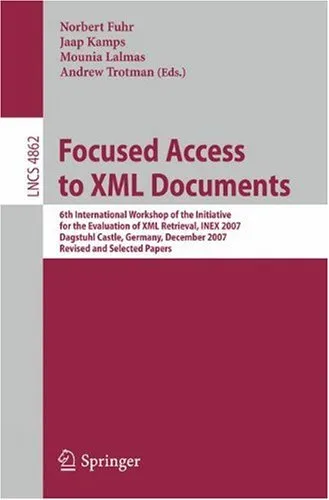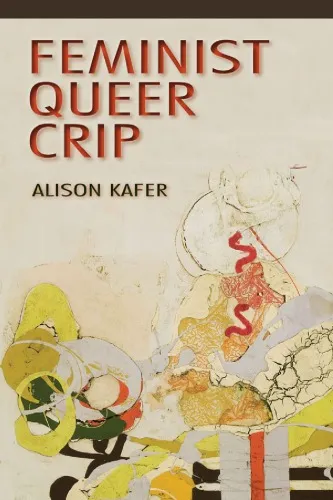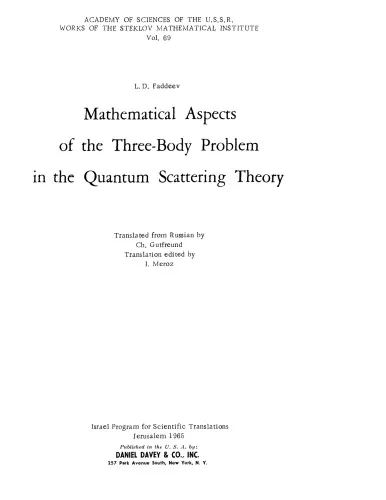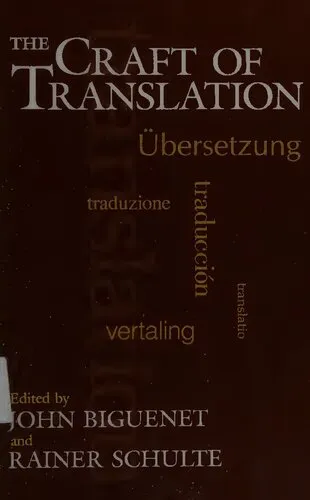Computer Aided Systems Theory — EUROCAST 2001: A Selection of Papers from the 8th International Workshop on Computer Aided Systems Theory Las Palmas de Gran Canaria, Spain, February 19–23, 2001 Revised Papers
4.0
بر اساس نظر کاربران

شما میتونید سوالاتتون در باره کتاب رو از هوش مصنوعیش بعد از ورود بپرسید
هر دانلود یا پرسش از هوش مصنوعی 2 امتیاز لازم دارد، برای بدست آوردن امتیاز رایگان، به صفحه ی راهنمای امتیازات سر بزنید و یک سری کار ارزشمند انجام بدینکتاب های مرتبط:
مقدمه
کتاب "Computer Aided Systems Theory — EUROCAST 2001" مجموعهای از مقالات منتخب از هشتمین کارگاه بینالمللی Computer Aided Systems Theory است که در لاس پالماس دو گران کاناریا، اسپانیا، در فوریه ۲۰۰۱ برگزار شد. این کتاب شامل مقالاتی است که پس از بازبینی و اصلاح مجدد به چاپ رسیدهاند و به بررسی تئوریها و کاربردهای جدید در سیستمهای کامپیوتری میپردازد.
خلاصهای جامع از کتاب
این کتاب با گردآوری مقالات پژوهشی و علمی، زمینهساز پیشرفت در مطالعات سیستمهای کامپیوتری است. مقالات این مجموعه به مباحث گوناگونی چون مدلسازی، شبیهسازی، تحلیل و بهینهسازی سیستمها پرداختهاند. یکی از اهداف اصلی این کارگاه فراهمسازی محیطی برای محققان و کارشناسان بود تا ایدهها و نتایج خود را به اشتراک بگذارند و فرصت بحث و تبادل نظر داشته باشند.
مطالب کتاب به پنج بخش کلی تقسیم میشود: تئوریهای سیستمها، روشهای محاسباتی، نرمافزارهای پیشرفته، سیستمهای کنترل و کاربردهای عملی.
نکات کلیدی
- ارائه آخرین پیشرفتها در زمینه مدلسازی سیستمها و شبیهسازی.
- بررسی جامع تئوریهای نوین در سیستمهای کنترل و بهینهسازی.
- تکنیکهای پیشرفته در محاسبات موازی و الگوریتمهای کارا.
- کاربردهای عملی در حوزههای مختلف از جمله مهندسی، علوم کامپیوتر و فناوری اطلاعات.
جملات معروف از کتاب
یکی از اهداف اصلی در طراحی سیستمها، ایجاد مدلی است که نه تنها پیچیدگی را کاهش دهد بلکه قابلیت تطبیقپذیری و انعطافپذیری بیشتری را ارائه دهد.
در عصر دیجیتال، توانایی حل مسائل پیچیده با استفاده از مدلسازی و شبیهسازی سریع، یکی از کلیدهای موفقیت است.
چرا این کتاب مهم است
کتاب "Computer Aided Systems Theory — EUROCAST 2001" به دلیل تجمع منحصر به فردی از مقالات علمی معتبر و نوآورانه در حوزه سیستمهای کامپیوتری از اهمیت ویژهای برخوردار است. این مجموعه به محققان کمک میکند تا به دیدگاههای جدید در تئوری سیستمها و کاربردهای آنها دست یابند و به پیشبرد علم و فناوری کمک کنند.
همچنین، این کتاب به علت شراکت در دانش بینالمللی و تبادل تجربیات مختلف از سراسر جهان، راهکاری برای حل مسائل پیچیده در مهندسی و علوم فراهم میکند که کاربردهای عملی گستردهای دارد.
Introduction to EUROCAST 2001
Welcome to the sophisticated domain of computer-aided systems theory. The book "Computer Aided Systems Theory — EUROCAST 2001" encapsulates a collection of meticulously selected papers from the prestigious 8th International Workshop on Computer Aided Systems Theory, held in Las Palmas de Gran Canaria, Spain, from February 19–23, 2001. These revised papers offer invaluable insights into cutting-edge research and developments within the realm of computer-aided methodologies, systems theory, and their applications in various fields.
Detailed Summary of the Book
The book serves as a comprehensive archive, showcasing a diverse array of topics that were deliberated and analyzed during the EUROCAST 2001 workshop. It delves into innovative theories, algorithms, and applications that serve as the backbone of modern computational systems. With an emphasis on practical implementation and theoretical advancements, the book covers areas such as artificial intelligence, bioinformatics, robotics, modeling, and simulation.
The essence of the workshop is captured profoundly through its papers that encourage the integration of interdisciplinary knowledge. Scholars, researchers, and practitioners share their findings, fostering a rich environment for knowledge exchange that pushes the boundaries of traditional systems theory. Additionally, the book reflects an amalgamation of foundational concepts and avant-garde theories that anticipate future challenges and technological trends. Each paper contributes to the overarching theme of leveraging computational methods to enhance system efficiency and problem-solving capabilities.
Key Takeaways
The EUROCAST 2001 proceedings offer several key takeaways that are pivotal for professionals and researchers in the field:
- Enhanced understanding of the role of computer-aided systems in transforming industries such as healthcare, transportation, and logistics.
- Exposure to collaborative methodologies that combine various computational techniques to solve complex problems.
- Insights into the future trajectory of systems theory, emphasizing the importance of adaptive and intelligent systems.
- Case studies and practical examples that illustrate successful implementation of theoretical concepts in real-world scenarios.
These takeaways not only enrich the reader's comprehension of the subject matter but also inspire further research and innovation in the field.
Famous Quotes from the Book
While a collection of papers might not traditionally be associated with famous quotes, the insightful discussions and profound statements made by experts in the field resonate throughout the book. Here are a few notable reflections:
"The convergence of systems theory and computer-aided methodologies marks the dawn of a new era in automation and artificial intelligence."
"Interdisciplinary collaboration is not just a beneficial practice; it is an essential strategy for addressing the complexities of modern computational challenges."
"The key to innovation lies in our ability to continually adapt and evolve our computational models to meet the demands of an ever-changing world."
Why This Book Matters
The significance of "Computer Aided Systems Theory — EUROCAST 2001" cannot be overstated in today's rapidly evolving technological landscape. As systems grow more complex and interdependent, the insights gained from this compendium are crucial for devising robust frameworks and solutions. The book stands as a testament to the profound impact that collaborative research and shared knowledge can have on technological advancement.
Furthermore, for anyone involved in computer science, engineering, or systems management, this selection of papers provides a pivotal resource for developing a nuanced understanding of computer-aided systems theory. It acts as both a historical document capturing the state of the field at the start of the 21st century and as an inspiration for future innovations.
By highlighting the breakthroughs and challenges of its time, this book continues to be a vital reference point for educators, researchers, and industry leaders aiming to develop systems that are not only efficient and effective but also capable of adapting to future technological shifts.
دانلود رایگان مستقیم
شما میتونید سوالاتتون در باره کتاب رو از هوش مصنوعیش بعد از ورود بپرسید
دسترسی به کتابها از طریق پلتفرمهای قانونی و کتابخانههای عمومی نه تنها از حقوق نویسندگان و ناشران حمایت میکند، بلکه به پایداری فرهنگ کتابخوانی نیز کمک میرساند. پیش از دانلود، لحظهای به بررسی این گزینهها فکر کنید.
این کتاب رو در پلتفرم های دیگه ببینید
WorldCat به شما کمک میکنه تا کتاب ها رو در کتابخانه های سراسر دنیا پیدا کنید
امتیازها، نظرات تخصصی و صحبت ها درباره کتاب را در Goodreads ببینید
کتابهای کمیاب یا دست دوم را در AbeBooks پیدا کنید و بخرید
1338
بازدید4.0
امتیاز0
نظر98%
رضایتنظرات:
4.0
بر اساس 0 نظر کاربران
Questions & Answers
Ask questions about this book or help others by answering
No questions yet. Be the first to ask!
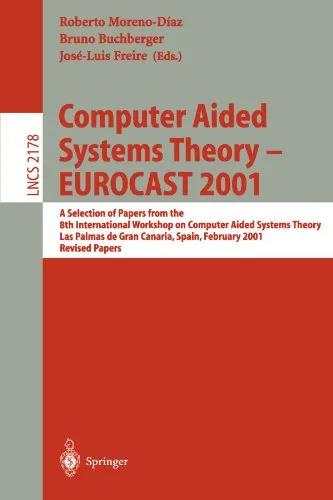


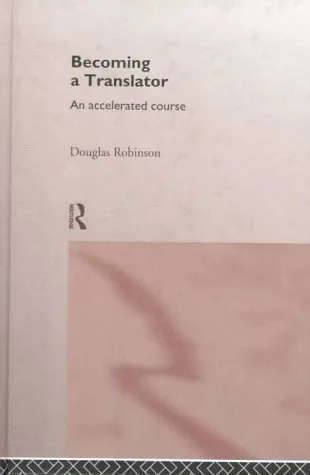
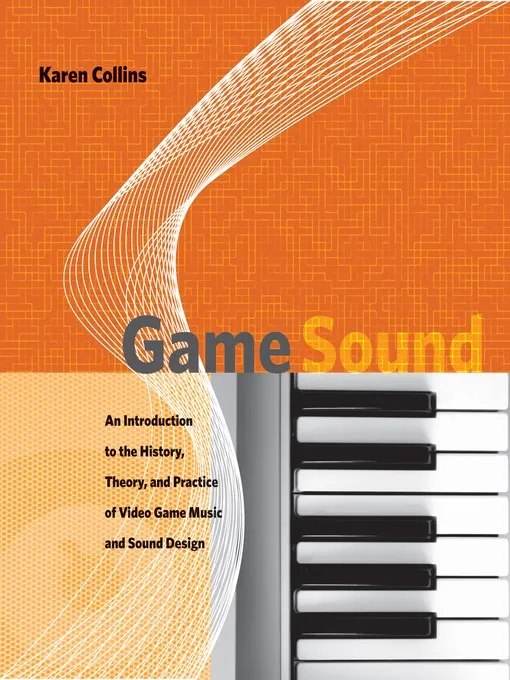
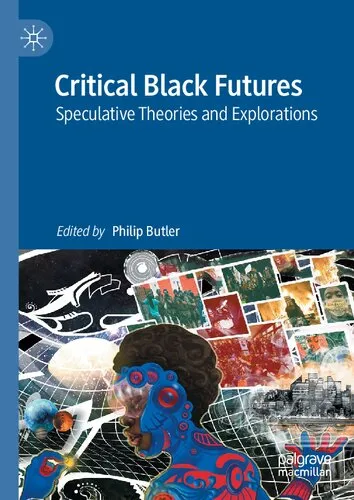
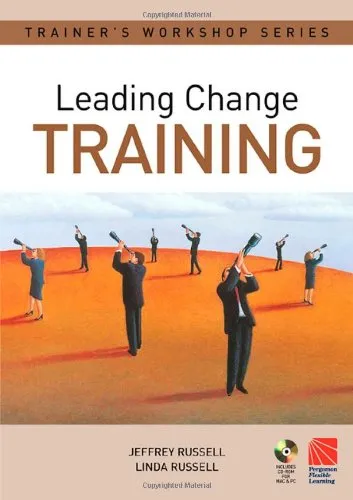
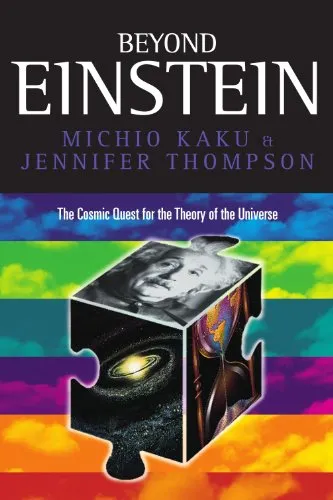

![New Trends in Hera Physics 2005: proceedings of the Ringberg Workshop [2 - 7 October 2005 at Ringberg Castle]](https://s3.refhub.ir/images/thumb/New_Trends_in_Hera_Physics_2005__proceedings__9842.webp)
